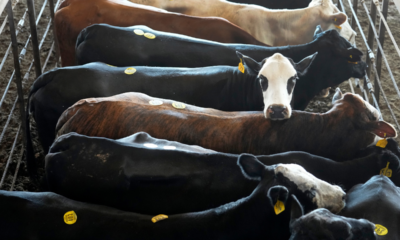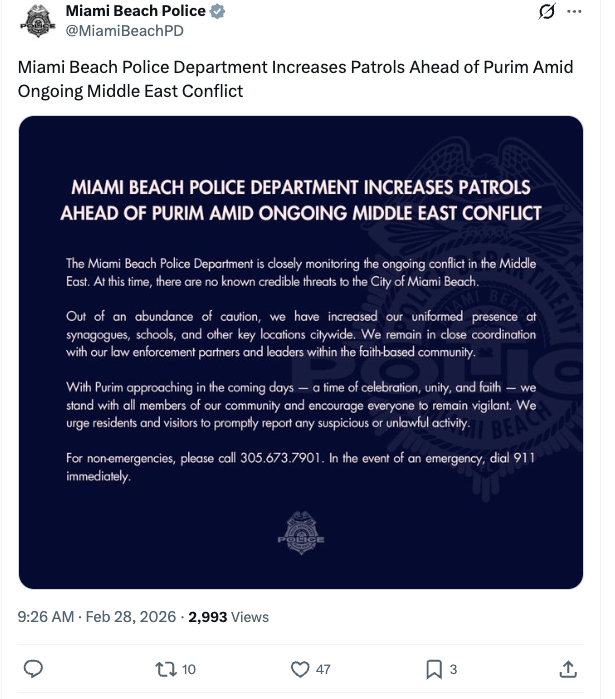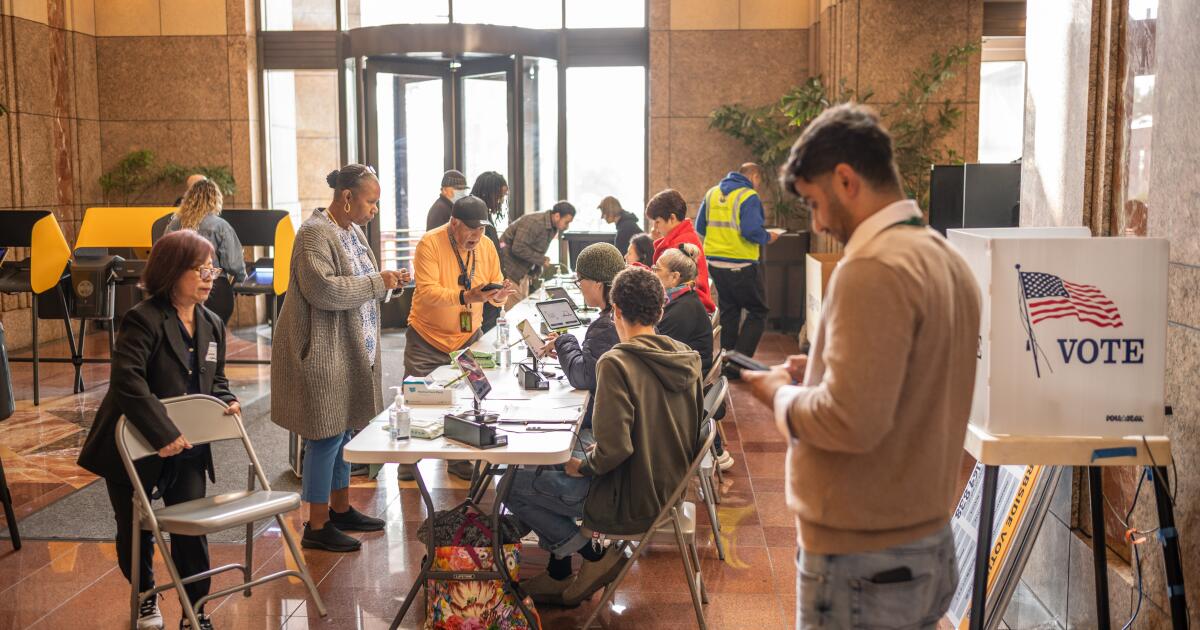Florida
Florida cucumbers may be linked to two separate salmonella outbreaks, FDA says

Why food recalls are increasing
E.Coli, metal and even a dead bat have been found in recalled food. In fact, food recalls are increasing. Yet, that might actually be a good sign. Here’s why.
USA TODAY
An outbreak of salmonella that has infected 162 people in 26 states and the District of Columbia has been potentially linked to Florida-grown cucumbers, according to a release from the U.S. Food and Drug Administration, and they may be connected to a different outbreak with 158 people affected.
Fresh Start Produce Sales Inc. of Delray, Florida voluntarily recalled cucumbers shipped in bulk cartons directly to retail distribution centers, wholesalers, and food service distributors in 14 states from May 17th through May 21, 2024, after the Pennsylvania Department of Agriculture found that a cucumber sample tested positive for Salmonella africana. The FDA has been investigating any possible connections to the outbreak.
“Of the 65 people interviewed, 47 (72%) reported eating cucumbers,” the FDA said Wednesday. So far 54 people have been hospitalized, according to a notice from the Centers for Disease Control and Prevention. Eighteen of the infected people were in Florida. There have been no deaths reported.
The FDA and the CDC are also investigating an outbreak of Salmonella braenderup infections, with 158 illnesses in 23 states, which the FDA said shares some similarities. “Investigators are working to determine whether the two outbreaks could be linked to the same food vehicle,” the FDA said.
Multiple outbreaks at a time are unusual. The second outbreak of salmonella “came out of left field,” said food safety lawyer Bill Marler. “We’re not quite sure the second outbreak is linked to the first. It might have been, but until they do a little more epidemiological investigation it’s hard to know.”
Marler, who has worked on food safety cases since the Jack-in-the-Box e. coli outbreak in 1993, said the multiple strains of salmonella may also have caused delays with the investigation.
“I’m a bit surprised it took the FDA and CDC so long to figure out the link for the africana outbreak,” he said, “but it may have been… to the two outbreaks, some of the people from the other strain also ate cucumbers.
“It may have been a pretty confounding investigation,” he said.
“The public should be on alert.” Marler told USA TODAY.
The CDC is also investigating a salmonella outbreak linked to backyard poultry, which has sickened 109 people, including 33 who were hospitalized.
A previous salmonella outbreak this year linked to organic basil sold at Trader Joe’s affected 12 people in seven states, including Florida, leaving one person hospitalized.
The recalled cucumbers were whole, dark green, approximately 1.5 – 2.0 inches in diameter, and 5-9 inches long. Mini cucumbers and English cucumbers were not included in the recall.
“Cucumbers distributed by Fresh Start Produce Sales, Inc. are from a variety of growers,” the FDA said. “The grower that likely supplied potentially contaminated cucumbers is no longer growing and harvesting cucumbers for the season.”
Where were people infected with salmonella?
So far, the people infected in this salmonella outbreak are in:
- Alabama: 1
- Arizona: 1
- Connecticut: 2
- Delaware: 1
- District of Columbia: 1
- Florida: 18
- Georgia: 8
- Indiana: 1
- Iowa: 3
- Kentucky: 4
- Maine: 1
- Maryland: 2
- Massachusetts: 5
- Michigan: 4
- Minnesota: 5
- Missouri: 1
- New Jersey: 3
- New York: 19
- North Carolina: 7
- Ohio: 9
- Pennsylvania: 27
- Rhode Island: 4
- South Carolina: 8
- Tennessee: 8
- Texas: 2
- Virginia: 17
“This outbreak may not be limited to the states with known illnesses, and the true number of sick people is likely much higher than the number reported,” the CDC said. “This is because many people recover without medical care and are not tested for salmonella.”
Which stores sold the recalled cucumbers?
The FDA has not released any information on affected retailers.
“I am surprised there isn’t more data out there where the cucumbers went and what grocery stores they may have gone to, what service outlets they may have gone to,” Marler said.
“That might be because the product has a short shelf life and the FDA figured they were off the market.”
What is salmonella?
“Salmonella are bacteria that make people sick,” the Centers for Disease Control and Prevention says on its fact page.
Salmonella can make people ill with diarrhea, fever, and stomach cramps which can last from four days up to a week. Symptoms usually begin six hours to six days after infection, the CDC said. Most cases of Salmonella infections pass, but some people may need to be hospitalized.
Salmonella bacteria cause “about 1.35 million infections, 26,500 hospitalizations, and 420 deaths in the United States every year,” the CDC said. “Food is the source for most of these illnesses.”
What you should do
If you recently bought any cucumbers, check with the store where you bought them to see if they were part of the recall. Ifd so, or if you’re not sure, don’t eat them. The CDC recommends you wash any surfaces they may have touched with hot soapy water or a dishwasher.
Call a doctor if you have any of these severe symptoms:
- Diarrhea and a fever higher than 102°F
- Diarrhea for more than 3 days that is not improving
- Bloody diarrhea
- So much vomiting that you cannot keep liquids down
- Signs of dehydration, such as:
- Not peeing much
- Dry mouth and throat
- Feeling dizzy when standing up

Florida
Florida man rescued after being stuck in shoulder-deep mud for days

Watch CBS News
Florida
South Florida leaders take preventative safety measures after the U.S. and Israel’s attack on Iran

South Florida leaders are taking preventative measures to keep residents safe after the U.S. and Israel launched major strikes on Iran early Saturday morning.
Miami-Dade County mayor Daniella-Levine Cava issued a statement reacting to the military operation that President Trump dubbed on Truth Social as “Operation Epic Fury.”
The statement reads: “The escalating conflict between the United States, Israel, and Iran poses serious risks to regional stability and international safety.”
She goes on to say that her thoughts are “with the people of Israel and the Jewish community here in South Florida who are watching these events with worry and uncertainty.” She also says the Iranian people “deserve peace, safety, dignity, and the freedom to live without repression.”
Of the Trump administration’s decision to launch the military operation, Levine-Cava writes: “Any military action taken without congressional authorization is a dangerous precedent, and we must learn from our nation’s past challenges. What must come next is a serious effort to restore stability and pursue diplomacy, not further violence.”
As for measures she will be taking, she says she asked her Chief of Public Safety to “ensure public safety agencies are aware and ready to activate plans in case of any disruption.”
The Miami-Dade Sheriff Rosie Cordero-Stutz also issued a statement saying that MDSO is “taking immediate security measures by increasing patrols to ensure the safety of our residents.” She said that they have increased security presence around places of worship, cultural centers, and schools.
“Our thoughts and prayers are with the servicemen and women protecting our national security interests around the globe,” Cordero-Stutz wrote.
Aventura Police have also responded to the current situation on X, saying that they are monitoring the “current situation in the Middle East with our local, state, and federal partners.”
They go on to say: “At this time, there are no known or credible threats to the U.S. or Miami-Dade County.” However, they note that in “an abundance of caution,” they will be increasing security in religious facilities and other locations they deem as “sensitive” throughout the city.
The City of Miami Beach also posted its statement to X, saying it is also “closely monitoring the ongoing conflict in the Middle East.” They also note that at this time, there are no known credible threats to the city.
They write: “Out of an abundance of caution, we have increased our uniformed presence at synagogues, schools, and other key locations citywide. We remain in close coordination with our law enforcement partners and leaders within the faith-based community.”
They also urge residents to report any “suspicious or unlawful activity” to call their non-emergency number at 305-673-7901 or, if it is an emergency, call 911.
Other cities’ police departments, such as Bal Harbour, Sunny Isles Beach, and Hallendale Beach, posted on their social media that they will also increase security measures after the U.S.-Israel strikes on Iran.
Florida
Golf roundup: Austin Smotherman plays ‘boring, simple’ to expand lead in Florida

Austin Smotherman will carry a three-stroke lead into the weekend at the Cognizant Classic at The Palm Beaches.
Smotherman followed his opening 62 with a 2-under-par 69 on Friday at PGA National’s Champion Course in Palm Beach Gardens, Fla. That brought him to 11 under, comfortably clear of Taylor Moore, who is in second after his second straight 4-under 67.
Cognizant Classic scoreboard
“Yeah, leading a PGA Tour event, come on, pretty awesome,” Smotherman said.
Smotherman, 31, is in fine position for his first win on the PGA Tour since turning pro a decade ago. He has won three times on the Korn Ferry Tour, including last June.
Afterwards, he credited himself with playing “Austin Smotherman golf.” When asked what that meant, he responded, “as boring and simple as it can be.
“That’s what I want to do out there. I feel like I ball strike it good enough to have that kind of boring golf, a bunch of fairways ideally,” he said.
He suffered three bogeys Friday after a bogey-free opening round, but the key stretch for him after starting on the back nine was between Nos. 17 and 3. He birdied four holes in that stretch, starting with a 54-foot bomb at the par-3 17th hole.
“Anything under par I thought would have been (good) following up a round like yesterday, which was a special one,” he said, “and try not to get too far ahead of myself thinking I’m going to make every long putt I’m looking at, like kind of was the feeling yesterday, and then today I still make a 55-footer on 17.”
Moore overcame a bogey in each half of his round with three birdies on either nine, more than counterbalancing the rough patches to earn his second straight solid score.
“I think very different 67s,” Moore said when comparing his rounds. “I didn’t hit many fairways yesterday, kind of grinded a lot, had a couple chip-ins, which obviously helps. I thought I struck the ball much better today. Drove it in the fairways on the par-5s, I felt like. Yeah, still had a few up-and- downs, obviously, with the tough windy conditions this afternoon, but overall I thought it was solid.”
Canadian A.J. Ewart had the round of the day, a 64 that powered him to 7 under for the week. He’s tied with Colombia’s Nico Echavarria (72), and Joel Dahmen is in fifth at 6 under after a second consecutive 68.
Ewart, who played for nearby Barry University in college, came in with some familiarity.
“We used to come and watch this tournament when I was at school. I think I came up here twice, maybe three times and watched,” Ewart said. “I had never actually played the golf course, but I felt like I knew it just from watching it.”
Irishman Shane Lowry, one of the most recognizable players in the field, is in a large knot for sixth at 5 under after posting a 67. Defending champion Joe Highsmith made the cut on the number at even par.
Notable players who missed the cut included Webb Simpson (1 over), Gary Woodland (2 over), Matt Kuchar (2 over) and Canada’s Adam Hadwin (3 over).
Kim maintains narrow lead in Singapore
Auston Kim maintained a narrow lead over three seasoned competitors with a 3-under-par 69 on Friday at the HSBC Women’s World Championship in Singapore.
Kim carded five birdies and a double-bogey at the par-5 16th hole at Sentosa Golf Club to move to 9-under par, one shot ahead of major champions Minjee Lee of Australia (64 on Friday) and Thailand’s Ariya Jutanugarn (67) and three- time LPGA Tour winner Haeran Ryu of South Korea (68).
Lurking two shots back at 7-under in the no-cut event are Australia’s Hannah Green (66), Denmark’s Nanna Koerstz Madsen (68), Sweden’s Linn Grant (69) and England’s Mimi Rhodes (69).
Kim, an LPGA Tour member since 2024, has been knocking on the door of her first tour win. The American has eight finishes in the top 10 and was the runner-up at the KPMG Women’s PGA Championship last season.
“I think just sticking to my process. I’m trying to earn each shot and win each shot and win each day,” Kim, 25, said of her strategy heading into the weekend. “I can put a hundred percent of my focus into every single shot and try my best to execute each time, I’ll do well.”
Lee soared into contention with an eagle at the par-4 second hole and six birdies in a bogey-free round.
“I think just I holed a few more putts out there,” Lee said of the difference between Friday’s play and her opening-round of 72. “I holed a few long ones and I also holed out for eagle on the second. That always helps the score.”
Jutanugarn had six birdies, including three straight from holes Nos. 5-7, and one bogey.
Ryu collected four birdies in a round free of bogeys, but not free from pain.
“Today, my neck was so bad and I cannot turn it around, it’s so hard, my neck,” Ryu said. “But yeah, golf is not perfect. I just think about it, just hit the fairway and the green. Yeah, that’s good for me. There’s a lot of birdies, and yeah, I’m so happy.”
Angel Yin matched Lee for the low round of the day with a 64 to move into a tie for ninth at 6-under.
Defending champion Lydia Ko of New Zealand (72) remained a 2-under posting four birdies and four bogeys.
World No. 1 Jeeno Thitikul of Thailand is tied for 33rd at 1-under after a round of 70.
-

 World3 days ago
World3 days agoExclusive: DeepSeek withholds latest AI model from US chipmakers including Nvidia, sources say
-

 Massachusetts4 days ago
Massachusetts4 days agoMother and daughter injured in Taunton house explosion
-

 Montana1 week ago
Montana1 week ago2026 MHSA Montana Wrestling State Championship Brackets And Results – FloWrestling
-

 Denver, CO4 days ago
Denver, CO4 days ago10 acres charred, 5 injured in Thornton grass fire, evacuation orders lifted
-

 Louisiana6 days ago
Louisiana6 days agoWildfire near Gum Swamp Road in Livingston Parish now under control; more than 200 acres burned
-

 Technology1 week ago
Technology1 week agoYouTube TV billing scam emails are hitting inboxes
-

 Technology1 week ago
Technology1 week agoStellantis is in a crisis of its own making
-

 Politics1 week ago
Politics1 week agoOpenAI didn’t contact police despite employees flagging mass shooter’s concerning chatbot interactions: REPORT
























